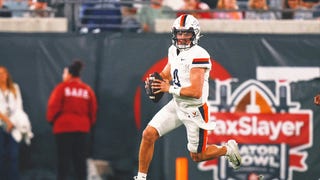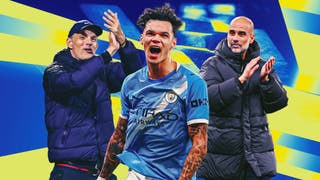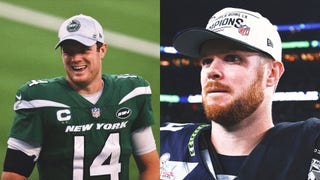ST. PAUL, Minn. – The first quarter of the legal fight between NFL players and owners has finally started, and the referee in the case is already calling for the final whistle.
Even that may not be enough to get these two sides back together in what has turned into a bitter dispute.
U.S. District Judge Susan Richard Nelson told both sides Wednesday that it could take "a couple of weeks" for her to rule on the players' request to lift the lockout imposed by owners and let them get back to the job.
In the meantime, she urged both sides to get back to the bargaining table and hammer out a deal before she makes the first of what could be many legal decisions.
"It seems to me both sides are at risk, and now is a good time to come back to the table," Nelson said.
James Quinn, an attorney for the players, said they'd "listen carefully" to Nelson's recommendation. But David Boies, a lawyer for the league, hedged when asked about Nelson's offer to supervise talks.
"We don't need a settlement of this lawsuit," Boies said. "What we need is a collective bargaining agreement so that players can go on playing and the league can put on games. Until we have that, we're not going to make any progress."
Boies said in court that "there are numerous factual disagreements between the parties."
The first issue is whether Nelson should issue a preliminary injunction that would lift the lockout. The players argue their careers are being "irreparably harmed" by the work stoppage.
The owners argue that the court doesn't have the jurisdiction to impose the injunction while the National Labor Relations Board is considering an unfair labor charge filed by the league that players didn't negotiate in good faith.
The three highest-profile plaintiffs in the players' antitrust lawsuit against the league — Tom Brady, Drew Brees and Peyton Manning — were not in attendance. Plaintiffs Ben Leber, Mike Vrabel, Vincent Jackson, Brian Robison and Von Miller were in court, accompanied by veterans Charlie Batch and Tony Richardson.
Hall of Famer Carl Eller, the lead plaintiff in a separate, similar case filed by retirees, former players and rookies, was also present. Nelson approved a motion to consolidate those cases, and attorney Michael Hausfeld — on behalf of the Eller group — took turns with Quinn arguing against and rebutting Boies.
"All of these players are being affected every day by being locked out," Quinn said.
Boies said the union's decertification was "a sham," and likened it to flipping a light switch to turn the negotiations over the $9 billion business in their favor.
But Nelson pressed Boies over and over again on the players' right to decertify, saying she was having a hard time seeing how antitrust exemptions protect a lockout after a union has disbanded.
"It's a big risk on their part," Nelson said of the players' decision, "and they lose a lot by doing it."
Boies claimed players are still acting like a union, that the NFL Players' Association is funding the litigation and has set up other services for the players as if it were a fully formed labor entity. DeMaurice Smith, the head of the NFLPA, attended the hearing, and the players, lawyers and union officials arrived and departed together in a bus.
"They're financing this lawsuit," Boies said. "They're saying, 'We're no longer a collective bargaining agent, but we're going to continue to do all these things.'"
Quinn dismissed the accusation, pointing to unanimous participation in a player vote to approve the move.
"It's not some kind of tactic. It's the law," Quinn said. "It's what we're allowed to do."
When she reveals her decision, the winner would have leverage whenever talks resume on a new CBA. However, that ruling will likely be appealed. She could also defer a decision until after the NLRB rules, which could take months, or declare the need to schedule another hearing to consider the evidence in the case before she rules.
That would be a loss for the players as well.
"We're just trying to get the game of football back," Robison said. "That's why we're here today. That's why hopefully the judge will grant us this injunction so we can start going back to work."
When the five-hour hearing concluded, Nelson offered to help facilitate a return to the mediation table in hopes of bringing this matter, and the subsequent antitrust lawsuit filed by the players, to a close.
"This is really a matter that should be resolved because a lot of people are impacted by this dispute," she said. "I hope both sides take advantage of (mediation)."
___
AP Sports Writer Dave Campbell contributed to this report.








































